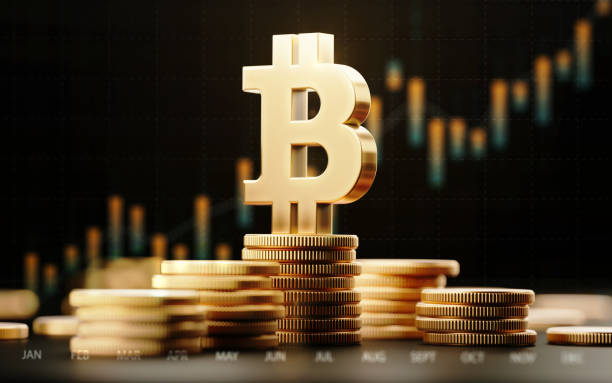How Does Bitcoin Mining Work: A Thorough Aide for Fledglings

Bitcoin mining is a critical cycle that guarantees the trustworthiness and usefulness of the Bitcoin network. It is a decentralized approach to approving exchanges and getting the network. On the off chance that you’re new to the universe of digital forms of money and inquisitive about how Bitcoin mining works, this guide will furnish you with a careful comprehension of the interaction.
What is Bitcoin Mining?
At its center, Bitcoin mining is the cycle by which new bitcoins are made and exchanges are checked on the Bitcoin blockchain. It includes addressing complex numerical riddles, which require huge computational power. Diggers are compensated with brand new bitcoins for their work in tackling these riddles, which is how new bitcoins are brought into flow.
The Job of Diggers in the Bitcoin Network
Diggers assume a basic part in keeping up with the security and steadiness of the Bitcoin network. They confirm exchanges and add them to the blockchain, a public record that records each Bitcoin exchange made. At the point when a digger effectively tackles a numerical riddle, they add another block of exchanges to the blockchain. This interaction is known as verification of-work.
The Bitcoin network utilizes proof-of-work to guarantee that all members adhere to the very guidelines and that exchanges are legitimate. It likewise forestalls twofold spending, a situation where somebody could attempt to spend a similar Bitcoin two times.
How Does Bitcoin Mining Work?
Exchange Confirmation: Each time somebody makes a Bitcoin exchange, it gets communicated to the network. These exchanges are then gathered into a block, anticipating confirmation by excavators.
Settling the Riddle (Confirmation of-Work): To add a block to the blockchain, excavators should tackle a complex cryptographic riddle. This cycle is computationally escalated, expecting excavators to attempt billions of various blends until they view as the right one. The primary excavator to settle the riddle gets the option to add the block to the blockchain.
Mining Trouble and Block Prize: The Bitcoin network changes the trouble of these riddles each 2016 blocks (roughly at regular intervals) to guarantee that blocks are mined at a consistent rate, about like clockwork. Excavators are compensated with shiny new bitcoins and exchange expenses for each effectively mined block.
At first, the compensation for mining a block was 50 bitcoins, yet this sum is divided generally like clockwork in an occasion called the splitting. As of now, the prize is 6.25 bitcoins per block. This dividing system guarantees that the complete inventory of Bitcoin stays restricted, covering at 21 million coins.
Mining Equipment: Mining requires strong equipment that can play out countless computations each second. In the beginning of Bitcoin, mining utilizing a standard PC was conceivable. However, as additional excavators joined the network, the trouble of mining expanded, and concentrated equipment known as ASICs (Application-Explicit Coordinated Circuits) became essential. These machines are upgraded for mining Bitcoin and are undeniably more productive than customary computer processors or GPUs.
Mining Pools: Mining all alone (solo mining) can be incredibly troublesome and expensive because of the opposition from different excavators. Accordingly, numerous excavators join mining pools. These are gatherings of excavators who consolidate their computational ability to build their possibilities tackling a block. At the point when the pool effectively mines a block, the prizes are dispersed among the members in view of their commitment to settling the riddle.
The Ecological Effect of Bitcoin Mining
One of the reactions of Bitcoin mining is its critical natural effect. Mining Bitcoin consumes a lot of power, principally due to the energy-escalated nature of proof-of-work. Numerous Bitcoin diggers use power from non-sustainable sources, which adds to fossil fuel byproducts.
However, the business is progressively advancing toward utilizing sustainable power sources, for example, hydroelectric, wind, and sunlight based power, to diminish its carbon impression.
For what reason is Bitcoin Mining Significant?
Bitcoin mining is fundamental in light of multiple factors:
Exchange Approval: It guarantees that exchanges are real and forestalls twofold spending.
Network Security: Diggers shield the Bitcoin network from assaults and deceitful exercises.
Decentralization: Bitcoin’s decentralized nature depends on diggers spread across the globe, guaranteeing that no single element controls the network.
New Bitcoin Creation: It brings new bitcoins into dissemination, ensuring that the complete inventory of Bitcoin stays restricted.
End
Bitcoin mining is a fundamental part of the Bitcoin biological system. It not just guarantees the security of the network and approves exchanges yet in addition makes new bitcoins. While it requires critical computational power and energy, mining is a basic cycle that keeps the decentralized Bitcoin network moving along as planned. Whether you’re thinking about getting into Bitcoin mining or just interested about how it works, understanding the mechanics of mining is essential to getting a handle on how Bitcoin works as a computerized money.







